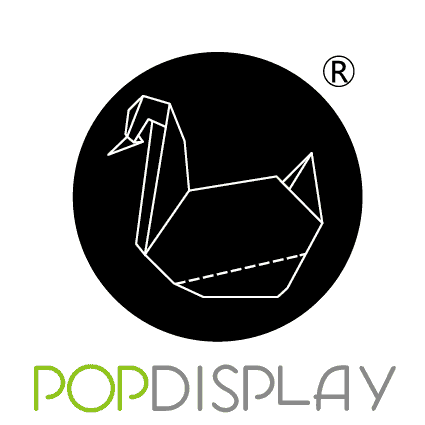What Is CPG Marketing?
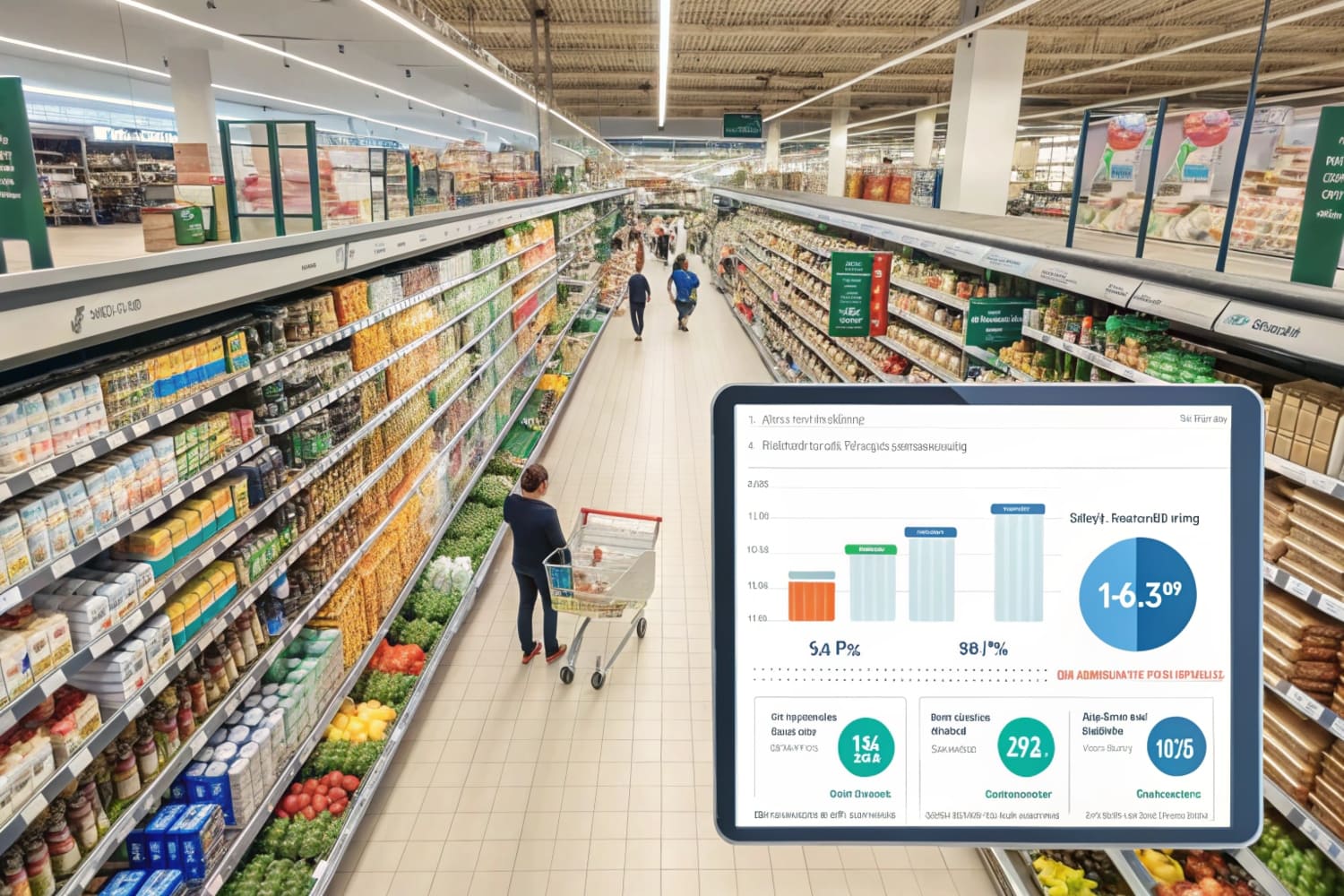
Every store shelf is a silent war zone. Brands fight for space, price, and my quick glance. If I misread the battle, I lose sales and repeat buyers.
CPG marketing is the set of strategies brands use to make low-cost, high-turnover consumer packaged goods win visibility, trials, and repeat sales at scale.
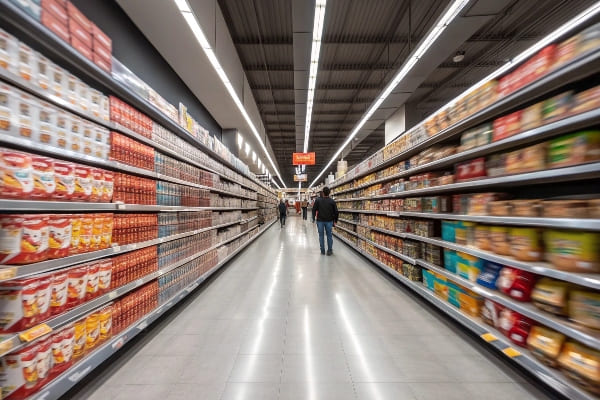
Shoppers still scan, compare, and decide in seconds. I must hook them fast, keep them loyal, and do it again next week. Read on to see how I turn cardboard, data, and design into steady profit.
What does CPG stand for in marketing?
Convenience drives my buyers. Packages must be light, priced low, and always in stock. Miss one factor, and they leave.
CPG stands for “Consumer Packaged Goods,” everyday items sold quickly, priced low, and replaced often, such as snacks, toothpaste, or detergent.
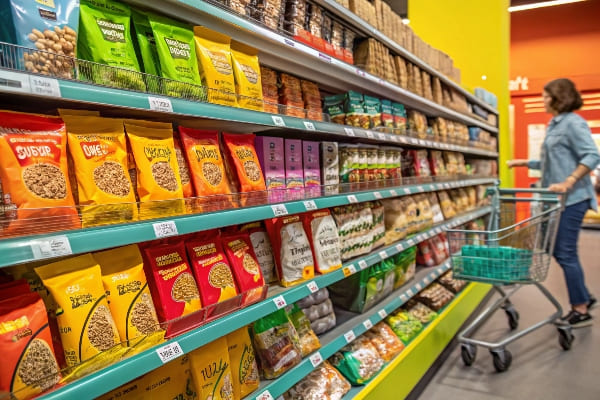
Everyday Essentials, Fast Turnover
I picture the moment a shopper runs out of coffee pods1. They rush to the nearest store, not my website. That urgency shapes every move I make. In marketing terms:
| Aspect | Meaning for me | Risk if ignored |
|---|---|---|
| Low price | Promos must feel like value | Shoppers downgrade to store brand |
| Frequent need | Ads must run year-round | Brand recall fades in days |
| Shelf fight | Displays must pop | Competitor steals eye-level space |
How I Use This
I build bold cardboard displays2 that lift product eye-level. I pair bright graphics3 with QR codes that link to quick recipes or coupons. By making the product look useful and affordable, I lock in repeat trips. My factory lets me tweak artwork weekly without killing margins, so retailers keep granting me premium placement.
What are examples of CPG products?
Shelves look crowded, but each item plays by the same rapid-sale rule. I must know which ones to court.
Typical CPG products include beverages, chips, cereal, shampoo, razors, paper towels, and over-the-counter pills—small, branded items bought often and used up quickly.
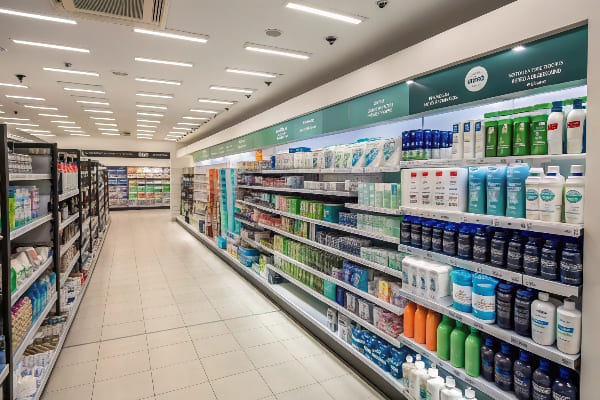
Mapping the Wide Range
I sort CPG into three buckets:
| Bucket | Household staples4 | Personal care5 | Impulse treats6 |
|---|---|---|---|
| Items | Detergent, trash bags | Shampoo, deodorant | Candy, energy drinks |
| Driver | Need based | Image based | Craving based |
| Display goal | Trust | Beauty | Excitement |
Why It Matters
Staples need trust. I showcase certifications and stress durability in my display copy. Personal-care brands crave elegance; I add soft curves and pastel prints. Impulse treats need speed; I load floor stands near checkout with bright reds and limited-time tags. By matching display style to product psychology, I raise sell-through by double digits and secure reorder contracts.
What is CGP marketing?
Typos creep into meetings, yet the idea still demands clarity. I face it often.
“CGP marketing” is usually a mistaken swap of letters; most teams actually mean CPG marketing, the promotion of consumer packaged goods through retail and digital channels.
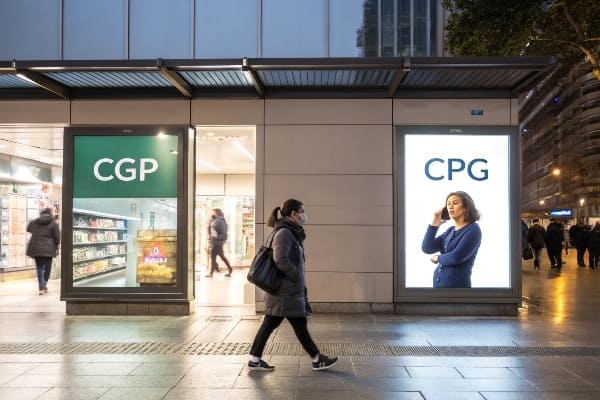
Handling the Mix-up
When clients ask for “CGP,” I politely confirm they mean CPG. Then I steer the talk back to shelf velocity7. Mislabeling can hide bigger gaps:
| Signal | Possible Gap | My Fix |
|---|---|---|
| Wrong term | New staff | Provide short glossary |
| Confused goals | Undefined KPIs | Align on sell-through targets |
| Overlap with B2B | Channel mix | Separate trade promo8 from consumer ad |
Practical Outcome
Clearing jargon prevents waste. I have seen teams print thousands of displays with unclear value props because they chased a buzzword. By pausing, I save them from junk inventory and earn trust.
What is CPG vs FMCG?
Two acronyms, same shelf? Clients push for nuance; I give them a crisp view.
CPG and FMCG both describe fast-moving packaged goods, but FMCG focuses on the product velocity itself, while CPG includes the brand, packaging, and marketing activities.
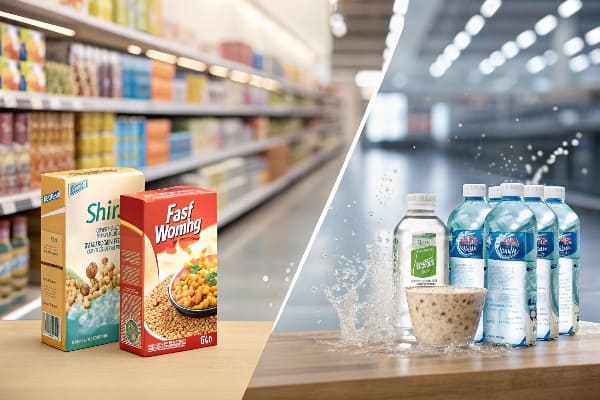
Drawing the Fine Line
FMCG9 is a European-leaning term. It stresses speed. CPG10, common in North America, adds brand equity. To me:
| Factor | CPG View | FMCG View | My Display Move |
|---|---|---|---|
| Brand story | Central | Secondary | Use lifestyle images |
| Price war | Frequent | Constant | Highlight savings tiers |
| Retailer cooperation | Joint planning | Volume focus | Offer modular displays |
Real-World Impact
My US clients measure brand lift11; my UK buyers watch weekly depletion rates. I tailor my cardboard specs: thicker board for slower lines, lighter for hyper-velocity ones. That choice cuts freight by 8 % and matches target margin.
What is consumer goods marketing?
The phrase seems broad, yet it guides my daily sprint between factory and store.
Consumer goods marketing promotes any product sold to end users, spanning durable and non-durable items, through research, segmentation, placement, and persuasive messaging.
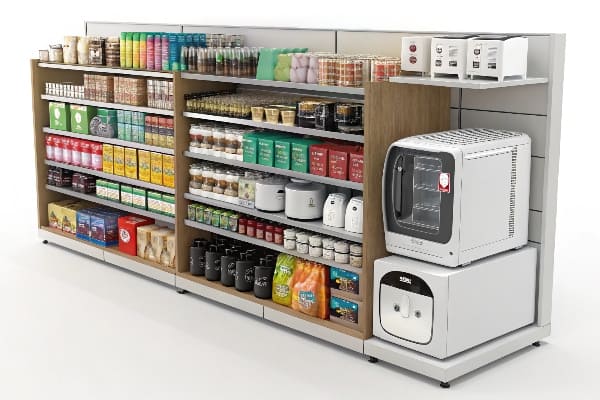
Scope and Scale
Consumer goods split into durable (appliances) and non-durable (snacks). My niche—displays—sits at the shopper-marketing intersection12:
| Layer | Goal | Example Tactic |
|---|---|---|
| Awareness | Reach mass | Social video demo |
| Consideration | Show proof | Sampling station |
| Purchase | Remove friction | Point-of-sale display |
My Personal Experience
I once launched a seasonal crossbow accessory display13 for Barnett Outdoors. By mixing rugged imagery with clear load-capacity icons, we boosted in-store pickups14 by 27 % versus plain shelf stock. That simple cardboard stand became a talking point on YouTube gear reviews, proving physical touchpoints still drive digital chatter.
What is the purpose of the CPG?
Acronyms get cold without purpose. I ground the meaning in one measurable goal.
The purpose of CPG marketing is to keep everyday products moving off shelves quickly and profitably by shaping consumer choice, retailer support, and supply alignment.
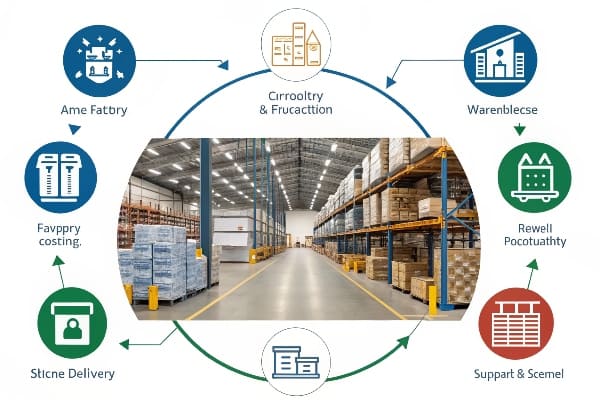
Driving the Flywheel
Three forces power my work:
| Force | Action | Result |
|---|---|---|
| Consumer pull15 | Ads, packaging | Demand surge |
| Retailer push16 | Promotions, displays | Shelf priority |
| Supply precision17 | Forecasting | On-time restock |
My Factory Lens
I operate three lines that can pivot die-cuts overnight. When a cereal brand sees a TikTok trend spike, I rush a new display header within two days. That agility prevents stockouts, keeps their sell-through curve smooth, and locks multi-year contracts. In short, purpose meets profit.
Conclusion
CPG marketing wins when simple packages, bold displays, and reliable supply turn quick purchases into lifelong habits.
Discover top-rated coffee pods that enhance your daily brew and keep you coming back for more. ↩
Learn how to design eye-catching displays that attract customers and boost sales in retail environments. ↩
Explore how vibrant graphics can enhance brand visibility and customer engagement in your marketing strategy. ↩
Explore effective strategies for marketing household staples to enhance trust and boost sales. ↩
Learn how to design attractive displays for personal care items that resonate with consumers’ desire for elegance. ↩
Discover innovative techniques to increase sales of impulse treats through strategic display and marketing. ↩
Understanding shelf velocity can help optimize product placement and inventory management, leading to better sales outcomes. ↩
Learning about trade promotions can enhance your marketing strategy by effectively targeting the right audience and maximizing ROI. ↩
Understanding FMCG can enhance your marketing strategies, especially in speed-focused markets. Explore this link for deeper insights. ↩
Learning about CPG will help you grasp brand equity in North America, crucial for effective marketing. Check this resource for more information. ↩
Discovering how brand lift is measured can significantly improve your marketing effectiveness. This link provides valuable insights. ↩
Understanding the shopper-marketing intersection can enhance your marketing strategies and improve consumer engagement. ↩
Explore design tips for seasonal displays to maximize in-store visibility and sales, especially in niche markets. ↩
Learn effective strategies to increase in-store pickups, which can significantly impact sales and customer satisfaction. ↩
Understanding consumer pull can enhance your marketing strategies and drive demand effectively. ↩
Learning about retailer push strategies can improve your product visibility and sales in retail environments. ↩
Exploring supply precision can help optimize your inventory processes and ensure timely restocks. ↩
